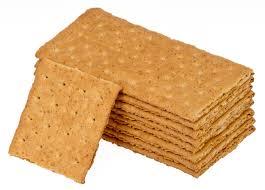News Taffy
| Post Your News Send Us An Event Start A Gallery |  |
| Most Recent | Most Popular | Top Contributors | Galleries | Events |
 | Contributor: admin subscribe to my stories |
 The Cardiologist's Wife - Sylvester Graham, the Father of Vegetarianism You've probably never heard of Sylvester Graham but you’ll recognize graham crackers, for the tasty little treats were named after him. An ordained Presbyterian minister, Graham was a force of nature in the mid-1800s who started a movement for better health and co-founded the American Vegetarian Society with English minister William Metcalfe. He is widely considered the father of vegetarianism in America. My daughter ran across an article about him and his story is too good not to share. Sylvester Graham became concerned that Americans morally and physically were in a state of decline, and felt that a better diet, abstinence and exercise were key to achieving better physical and spiritual health. He traveled the country lecturing and writing books, soon finding eager followers who called themselves Grahamites. Around this time, the Industrial Revolution ushered in many reforms that were sweeping the country like temperance and abolitionism, paving the way for Graham’s ideas. He promoted a diet of strict veganism consisting mainly of fresh fruits and vegetables, whole wheat and high fiber foods, though some fresh dairy was permitted. Meat, spicy foods, alcohol, coffee and tea were thought to cause an unhealthy arousal in the body and Grahamites avoided any kind of excitement in order to develop a pure mind and body. His other ideas for a healthy life style included frequent bathing, daily brushing of teeth, wearing loose fitting clothing, taking cold baths and eating cold food, exercise and relaxing. Some of his ideas seem laughable today but consider that at that time, many people bathed once a week, corsets were common and dental care primitive. Among his many writings, Graham wrote a paper entitled “Treatise on Bread and Bread Making”, where he noted that commercially produced white bread had the nutrient rich layer of bran removed and unhealthy ingredients added to whiten the flour, like copper, chlorine, alum, clay or chalk. Refined white bread was a status symbol for the middle and upper classes who could afford it while coarse wheat bread was eaten mainly by the less fortunate. Graham felt that bread should be baked at home by a loving mother and came up with his “graham bread” which was made of coarsely ground whole wheat. He claimed it was more nutritious. Nearly 200 years later, we now know he was correct. In many ways, Graham was ahead of his time in his ideas on better health. He was viewed as something of a crackpot by many and hated by butchers and bakers for his vilification of meat and commercially produced bread. Butchers and bakers frequently stormed his lectures, trying to run him out of town. Graham fired back, accusing butchers and bakers of being more interested in profits than the health of their consumers. Seems some things never change as the major food companies still battle that old accusation of profits versus health concerns (think trans fats and high fructose corn syrup). Even after his death in 1851, Graham’s ideas continued to influence people. John Harvey Kellogg, a physician, adhered to a strict vegetarian diet similar to Graham’s and eventually founded a sanitarium for his patients. In 1878, Kellogg began to make granola, a type of Grahamite cereal and other unrefined grain cereals. Kellogg developed his cereals because his patients found his diet plan too bland to follow. Interesting to see how one of the biggest producers of nutritionally void food like Pop Tarts, Froot Loops and Rice Krispies started as a health food company. [+] add comment |














